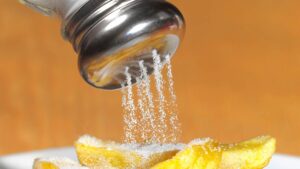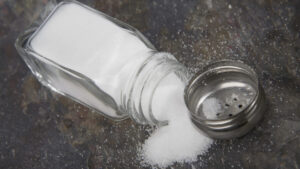BCI awarded key environmental approval for Mardie salt project

BCI has been awarded environmental approval for Mardie. Pic: via Getty Images
BCI has received the key environmental approval required for it to start production of its flagship Mardie Salt project in Western Australia’s Pilbara region.
The approval by the state minister for the environment is subject to several conditions though the company noted that these will have no material impact on the project’s design, costing or operations.
As such, BCI Minerals (ASX:BCI) expects to start production in early 2022 subject to secondary approvals and shareholder approval of the $360M capital raising that is cornerstoned by AustralianSuper.
The $1.2bn project is expected to be the first major salt development in the state in more than 20 years and one of the largest in the world, producing 5.35Mtpa of sodium chloride and 140,000tpa of sulphate of potash over a life of 60 years.
It is expected to deliver annual earnings before interest, taxes, depreciation, and amortisation (EBITDA) of $260m thanks to operating costs of about $21.50/t of salt and $337/t of potash, well in the bottom quartile of similar projects.
“Environmental approval for the Mardie Project implementation is the culmination of four years of BCI studies, surveys and consultation with multiple stakeholders,” managing director Alwyn Vorster said.
“BCI is committed to rigorously managing the environmental conditions set by the Minister to ensure a sustainable multi-generational project.
“Mardie has greener credentials than most other resources projects – it will not create mining pits or waste dumps; there will be no large-scale dewatering; it will utilise an inexhaustible seawater resource and it will harness the natural energy of the sun and wind to drive production over many decades.”
The company will now work with various authorities to finalise the secondary approval assessments that will enable development to commence as proposed.
Environmental conditions
The conditions set out by the WA Ministerial Statement are consistent with those set out in the recent appeals determination and allow the company to develop an environmentally sustainable project that preserves the flora, fauna and water systems of the area.
They will be incorporated into its environmental management plans to ensure impacts are minimised and managed.
BCI noted that Mardie’s footprint is about 5km inland from the coastline, meaning that the project has minimal impact on coastal vegetation.
Additionally, barren mudflats make up more than 90% of the pond area while another portion is covered by mesquite, a woody plant that is an introduced species and declared a weed in Western Australia.
This article was developed in collaboration with BCI Minerals, a Stockhead advertiser at the time of publishing.
This article does not constitute financial product advice. You should consider obtaining independent advice before making any financial decisions.
Related Topics
UNLOCK INSIGHTS
Discover the untold stories of emerging ASX stocks.
Daily news and expert analysis, it's free to subscribe.
By proceeding, you confirm you understand that we handle personal information in accordance with our Privacy Policy.








